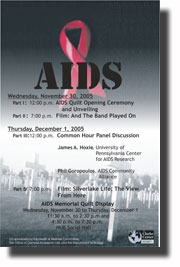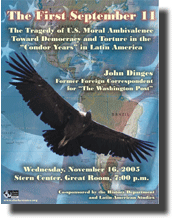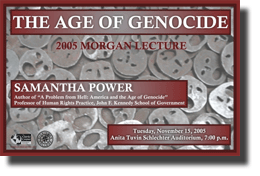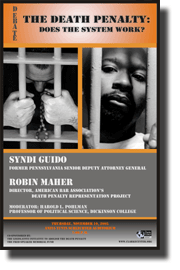Uncategorized
AIDS: Lest We Forget
Liberal Arts Education, Leadership and Business Management
Ethics in Neurological Practice: Discerning Appropriate Medical Care in Cases of Severe Brain Injury and Disease
The First September 11: The Tragedy of U.S. Moral Ambivalence Toward Democracy and Torture in the "Condor Years" in Latin America
The Age of Genocide
Aquaporin Water Channels: From Atomic Structure to Clinical Medicine
The Death Penalty: Does the System Work?
Presidential War Powers: From Lincoln to Bush
Race, Class, and Violence in America: Building Coalitions for Change
Memory, Counter-Memory, and the End of the Monument after 9/11
Women, Knowledge & Power
Healing: At What Price?
Globalization, Religion and Politics
James Gelvin, Professor of Middle East history at UCLA
![]() Streaming video (length 1:07:54)
Streaming video (length 1:07:54)
Islamist movements trumpeted the same commitment to social justice and social welfare as had governments before the 1970s. That commitment still resonated with the inhabitants of the region. Their own populist credentials in tatters, states throughout the region answered those who challenged them with repression. In the case of Iran, this did not work. In 1978-9, a broad-based revolutionary movement overthrew the shah. In other cases, repression has provided what may prove to be only temporary relief. It is a bit ironic that in the post-cold War “Age of Democratization” and “Age of Globalization,” so much of the Middle Eastern population has thus found itself enmeshed in the twin snares of authoritarianism and economic stagnation. Read more













